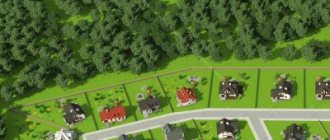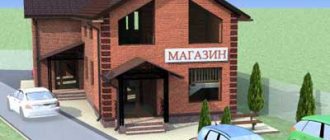A horticultural non-profit partnership is an association of owners of land plots located in the same territory. Such a partnership allows us to jointly solve problems affecting the life of a country gardening village.
Initially, the plots were distributed for gardening and vegetable gardening, but this does not mean that the current owners are engaged in precisely these types of activities. Some people just relax in a small country house, others actually grow vegetables, fruit trees, and flowers.
- 1 Features of membership in SNT
- 2 Pros and cons
- 3 How to draw up a contract
- 4 Statement
- 5 Expulsion of one of its members
- 6 Can SNT take the land
- 7 Consequences of exit
Regardless of how the site is used, the owners have many problems that need to be solved together. For example, lighting the village, connecting it to the gas pipeline, security. Members of a gardening partnership unite, resolve issues at a general meeting, and collect contributions for expenses for general needs.
Joining the ranks of SNT members is formalized. Moreover, from 2021, according to the new law, contributions are paid only through the bank; accounting must be kept for all income and expenses. But not everyone strives for such an association; is it possible not to join a partnership and how can persons already registered with SNT leave?
Features of membership in SNT
ATTENTION! Joining a gardening partnership is on a voluntary basis.
There is no legal norm according to which all owners of plots in a gardening village must be registered in the SNT. Those who nevertheless decide to unite in a partnership convene a general meeting, elect the leadership of the association, and adopt a statute.
SNT members have the right to determine the size of membership fees and the regularity of their payment. If necessary, the general meeting makes a decision to collect targeted contributions, for example, for the purchase of general equipment for cultivating land or for connecting utility lines.
Leaving the ranks of SNT is also voluntary; it is only important to follow the procedure correctly and not leave any debts on contributions . The owner of the plot does not always leave the partnership and sell the land; often he continues to use his plot further.
The reasons for making a decision may vary, but there is a certain order of exit that will need to be followed:
- If a member of the SNT decides to leave the association, he signs a specific agreement with the partnership that determines their future relationship.
- Such a person stops paying membership fees, but if there are debts on them, it is worth paying off. If, during membership in a gardening partnership, the owner of the plot made contributions for the purchase of common property or for other general needs, he will retain the right to use this property.
- The owner of the site, after leaving the SNT, ceases to obey its charter. Also, he can no longer be elected to the board of a horticultural non-profit partnership.
What awaits gardeners and summer residents in 2021: main changes
- no notifications or approval of construction from the administration are required here,
- the citizen calls the cadastral engineer, who carries out the necessary measurements and draws up a technical plan (based on the declaration that the applicant fills out),
- The citizen submits the disk with the technical plan to the MFC - and after a few days he already receives a document on registration of ownership of his house.
Then the decisions of the meeting will be legal and without prior notification to all participants, if all the issues on the agenda are those specified in the charter. But if other issues are raised at the meeting that are not provided for by the charter, then SNT members will still have to be notified about it (Law No. 369-FZ of November 9, 2020).
But now the situation has changed. On September 7, 2021, the Ministry of Finance published new clarifications according to which the owner of a garden plot can make a tax deduction if a house on this land was registered as his property in 2021 or later (No. 03-04-07/78389).
Thus, if, according to the documents, a building with the purpose of “residential” or “residential building” is listed on the site, it is equated to a residential building, and its owner can take advantage of the deduction and return tax in the amount of up to 260,000 rubles (if he still has the right for this deduction, since it can only be done once in a lifetime).
When selling a garden plot to another person, information about the new owner can be found from an extract from the Unified State Register of Real Estate. From the moment of registration of his property, the new owner becomes the individual owner of his plot. He can join SNT only after registering property rights, if he expresses a desire.
Expulsion from membership by decision of the general meeting of members in 2018 does not require a special reason. It is enough that the issue of expelling a particular gardener is on the agenda and there is a quorum at the meeting. A member of the partnership is considered expelled from the date of the expulsion meeting.
The initiator of the agreement can be either a citizen or an association. The law does not provide for the right of a partnership to refuse to enter into an agreement. If SNT officials avoid completing the document, the citizen can appeal the decision in court.
- According to the new law, there are two types of organizations outside the city: gardening (ONT) and horticultural (SNT). Dacha associations are forced to re-register and choose the type of community. The information is entered into Rosreestr.
- The status of the organization is determined at the meeting. In the case where most of the participants put themselves forward as gardeners, but some members have a full-fledged residential building, they needed to register their property before January 1. If they did not do this, the law forces them to rebuild the structures into garden houses intended for living in the warm season.
- According to current legislation, SNT members have the right not only to grow fruit, berry and vegetable crops on their plots, but also to build houses intended for seasonal living.
- The changes also affected the type of payments. Now there are membership (paid at a certain frequency) and targeted (made unscheduled when the need arises) contributions. They are carried out in non-cash form. Entry fees have been waived.
- Partnerships consist of 7 or more members.
- The chairman holds office for five years.
- Documentation related to the organization and work of communities is stored for at least 49 years.
- Accounting statements are available to each participant.
- Copies of documents, with the exception of those used for presentation to a government agency, are provided for a fee (the amount is determined at the meeting).
- It is mandatory to make monthly contributions. A delay of 2 months may result in expulsion from the organization. To reserve the right to use infrastructure facilities, you will have to make special contributions.
Is it possible to leave the association? Of course it is possible . But it should be borne in mind that such termination of the relationship may not be entirely beneficial for some categories of gardeners.
Advantages and disadvantages
Membership in TSN cannot be purchased with land. After purchasing a plot in a gardening village, the owner of the land decides whether he needs to join the association or not. What does the introduction give?
- A village with garden plots does not have the same authority and self-government as in a village or village. Therefore, plot owners need to resolve all issues independently. Joining a partnership effectively makes it easier to overcome many difficulties.
- At the general meeting of the partnership, a chairman and board members are elected who will deal with issues of communications, interaction with local authorities, and others.
- Collecting membership dues also has many benefits. It is more profitable to collectively collect money for connecting pipelines, electrical networks, and protecting the village.
But there are also disadvantages to such a combination:
- It is not always possible to quickly make a decision at a general meeting; each member of the partnership has the right to their opinion. Sometimes the importance of this or that decision of the board takes a long time to prove to each of the gardeners.
- Membership fees and target fees must be paid regularly and on time, even if your financial situation does not allow it. If SNT conducts gas or connects to electricity, the required amount must be paid before a certain date for such expensive work.
- The partnership can include people of different ages and different financial status. Even the plots are used for different purposes - some are building a residential building, others are simply growing a garden. In this regard, wishes and requirements for the management of a garden or dacha cooperative also arise.
Before you leave the association, you need to weigh all the advantages and disadvantages of membership. When the village has been organized for a long time, is equipped, and has an established life, you can simply buy a plot with communications.
A cheaper option is land in the new SNT, but in this case you will have to deal with everyday issues for a long time. And it’s easier to solve them together with the team.
What are the consequences of leaving SNT? There cannot be any legal consequences for the land owner, except for some inconveniences. To prevent any problems and conflicts with other gardeners, you just need to correctly draw up an agreement defining future relationships.
How to draw up a contract
Modern gardening villages are equipped with utilities and networks, this significantly increases the comfort of living and relaxing work in SNT. But it also increases the cost of land .
Connection of utility networks is carried out at the expense of site owners who donate membership and target fees for general needs.
If one of the members wants to leave the ranks of the partnership, he must resolve the issue of using the common property, for which he donated funds.
Such common property includes electrical communications and equipment, water supply and sewerage, gas pipelines, as well as equipped roads. If the site is connected to the systems, no one will want to lose comfort.
In order not to create problems for yourself, it is worth signing a special agreement with SNT:
- The partnership will continue to receive funds from such owner of the site for the maintenance of common property.
- And the owner himself will be able to use it freely.
Thus, a member of the SNT can leave the membership by law and retain the rights to use the property necessary for him . Usually the SNT board provides an agreement for review, but you can draw it up yourself.
ATTENTION! At the general meeting of SNT, an increased tariff for paying for the maintenance of common property for those who are not members of the partnership may be adopted.
If a person does not agree with such a tariff, he has the right to discuss the amount with the board, with the OS, and file a claim in court. When all the provisions of the contract are satisfied, the document is signed by the parties and comes into force.
Statement
In order for the process of leaving SNT members to be formalized, you need to write an application and submit it to the board. The relationship between the members of the partnership and the management does not always work out in the best way; if there is a conflict, the application can be sent simply by mail with notification or registered mail.
This document must contain the following information:
- To whom the application is sent - the name of the chairman and the name of the SNT are indicated.
- From whom it came - full name of the partnership member, number of his site.
- The requirement to conclude an agreement on further relationships.
- Date, signature.
If the owner of the plot does not continue to use the common property, he has the right to demand the return of contributions in cash or in kind.
Reasons for leaving SNT
Of course, each of the gardening members has his own reasons for leaving the partnership. But when analyzing most situations, the following can be distinguished:
- exorbitant membership fees - membership in SNT is paid;
- refusal of the infrastructure of the partnership - the landowner may not be satisfied with the benefits provided, or there is no need for them;
- the need to conclude direct contracts with suppliers of electricity, gas, water;
- conflict with the board of gardening - personal hostility, negative assessment of the activities of the chairman of the partnership, other grounds for conflict.
But whatever the reason, a member of the partnership has the right to leave it at any time. This is confirmed by current legislation, in particular, Article 13 of Federal Law No. 217 of 2021.
Expulsion of one of its members
At the first general meeting, gardeners adopt the charter of the partnership. It must define all the rules of activity of the association, including punishment for violation of the charter and general rules. The partnership may exclude the owner of the land from its membership in the following cases:
- When he violates the current legislation relating to the sphere of SNT.
- When violations in the behavior of such a person are regular, they cause problems for other people.
- In the case where a member of the partnership was given an order to eliminate violations, but he ignored this order.
Decisions on exclusion are made at the general meeting and entered into the minutes after voting.
Can SNT take the land?
If the land is privatized, the SNT member calmly leaves the partnership and continues his previous activities on his site. But, despite the privatization program, not everyone has yet registered their land correctly and does not have the title documents for it.
In such a situation, can a gardening partnership demand a plot and refuse to transfer the land? Such an action by SNT would be a violation of the law. If one of its members leaves the association, he retains the rights to his plot.
IMPORTANT! Lawyers recommend that all documents for the plot be completed before the procedure for leaving the SNT, so that the issue of the land does not even arise.
Is it possible to leave SNT
This article does not contain any special requirements for voluntary withdrawal from a gardening partnership. That is, it is enough to make a simple written statement addressed to the chairman of the SNT for membership to be terminated.
In addition to the application, Article 13 provides other grounds for termination of membership:
- loss of rights to land - sale, donation, other assignment of rights to a land plot on the territory of SNT;
- death of the owner of the land plot - membership is not inherited (read more about inheritance in this article), accordingly, the heirs receive only the right to the land, as well as unpaid arrears of contributions.
In the event of loss of rights to land or death of a member of the SNT, it is sufficient to notify the chairman of the board of the occurrence of grounds for termination of membership. This must be done to stop charging membership fees and will eliminate a possible monetary dispute with the SNT board.
Important: the notification must be in writing and submitted against signature to the SNT board. A lawyer on land issues will help you draw up the document and tell you how to properly hand it over to the chairman.
If you voluntarily leave the partnership, it will be enough to write a statement. However, a certain order will have to be followed to minimize conflict situations in the future.
Consequences of leaving
If the owner of a plot in a gardening association paid fees and took part in solving common problems, after leaving the association he signs an agreement defining his further interactions with SNT. He remains the owner of the land and can use the common property for a certain fee.
But some problems may still arise:
- If funds for maintenance of common property are not paid on time, the board may restrict access to it. And even count the delay.
- You can take part in general meetings, but without voting.
- The board of the partnership may charge too high a tariff for the use of common property. In this case, you will have to go to court.
- If some communications were not connected, the issue must be resolved independently, and this is not economically and time-efficient.
217-FZ on gardening partnerships for 2021 with amendments and comments
However, clause 2 of Article 23 contains a clause that such a territory must be included in the list of zones for which urban planning regulations have been approved. Therefore, when determining the possibility of constructing and registering a residential building, one should be guided not only by the category and permitted use of the land, but also by the master plan for the development of municipal land.
The dacha reform ultimately allowed citizens who have land plots in SNT to not only legally build permanent residential buildings, but also to register there. The construction of a house from March 1, 2021 must be carried out with permission and be subject to state registration upon completion of construction.
- on SNT lands you can obtain a building permit and build a residential building with the opportunity to then register after commissioning and state registration; on ONT you can build only non-permanent outbuildings;
- SNT can be converted into a cottage-type village if a number of conditions are met.
Today, entire cottage communities are being created on the lands of SNT, where there are residential buildings on each plot. Clause 12, Article 54 of Federal Law No. 217 will allow changing the status of land to “land of settlements” with permitted use for individual housing construction if the following conditions are met:
Since 2021, the new Federal Law on Dachas No. 217-FZ (adopted on July 29, 2017) has come into force, aimed at resolving situations and disputes around land plots in gardening and vegetable gardening partnerships, which prescribes a new change in the creation and operation of TSN (partnership property owners) in the form of SNT and ONT. Let's look at what's new under 217-FZ, with amendments and comments to the law.









